Biden issues last-minute pardons to Fauci, others ahead of Trump inauguration
Trump previously vowed to press Justice Department to prosecute people he considered part of a political opposition.
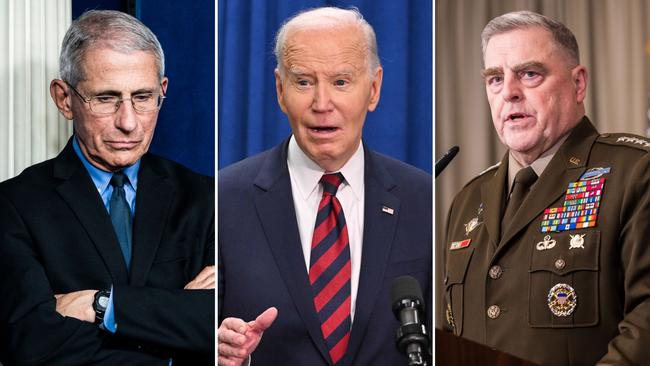
President Biden issued pre-emptive pardons for officials who have clashed with President-elect Donald Trump and for members of his family, including his three siblings, using his final hours in the White House to help people he fears could face retribution by the incoming administration.
Early on Monday, the White House said the president had issued pardons for retired Gen. Mark Milley, Dr. Anthony Fauci and members and staff of the House committee that investigated the Jan. 6, 2021, Capitol riot, as well as police officers who testified before the committee.
Then, in the waning minutes of his presidency — in a statement released as Biden was attending Trump’s inauguration — the White House said the outgoing president had pardoned his sister, Valerie Biden Owens, and her husband John T. Owens, and his two brothers, James B. Biden and Francis W. Biden, along with James Biden’s spouse, Sara Jones Biden.
“My family has been subjected to unrelenting attacks and threats, motivated solely by a desire to hurt me — the worst kind of partisan politics. Unfortunately, I have no reason to believe these attacks will end,” Biden said.
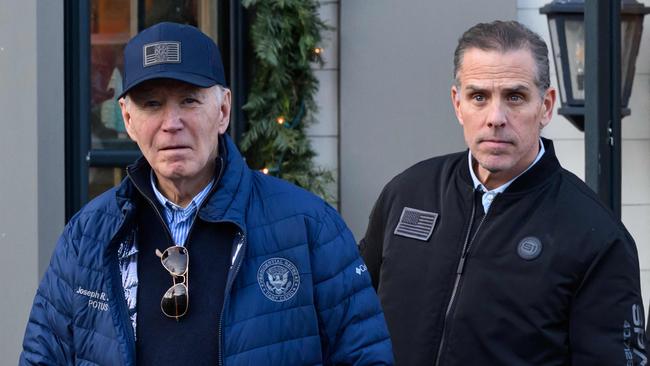
Last year, Biden issued a surprise pardon for his son, Hunter Biden, wiping away criminal convictions on tax and gun charges, and drawing bipartisan criticism.
The decision to grant the pardons represents an extraordinary move by an outgoing president to shield family members and allies from an incoming administration, which critics warned could set a new precedent for the use of presidential power. While past presidents have issued controversial pardons to protect allies and donors, Biden’s moves were unprecedented in sweep.
The threats from Trump were also without parallel. During his campaign, Trump vowed to press the Justice Department to prosecute people he considered to be part of a political opposition.
Biden’s use of such an expansive clemency action marks a bold use of presidential power.
“I believe in the rule of law, and I am optimistic that the strength of our legal institutions will ultimately prevail over politics,” Biden said. “But these are exceptional circumstances, and I cannot in good conscience do nothing.” He also said that the pardons shouldn’t be seen as an acknowledgment of wrongdoing.
Some Republicans said that was exactly the impression the pardons gave. “I wonder what criminal activity Biden is concerned they need a pardon from?” said Sen. Ron Johnson (R., Wis.) on X.
I wonder what criminal activity Biden is concerned they need a pardon from? https://t.co/iTywMCiXGh
— Senator Ron Johnson (@SenRonJohnson) January 20, 2025
Biden said that during his meeting with Trump at the White House last November, he urged the incoming president not to follow through on his threats to punish political enemies. He said he told Trump “that there was no need, and it was counterintuitive for his interest to go back and try to settle scores,” according to a USA Today interview.
Legal experts said Biden was stretching the use of pardons beyond their traditional role.
Biden’s decision “risks weaponizing clemency and repurposing it into a shield for political battles,” said Jeffrey Crouch, author of “The Presidential Pardon Power” and an American University professor.
In 1974, after President Richard Nixon resigned the presidency as a result of the Watergate scandal, his successor, President Gerald Ford, granted him a “full, free, and absolute pardon” for all federal offences he “committed or may have committed or taken part in.” That decision was seen as a major factor in Ford’s defeat in the 1976 election.
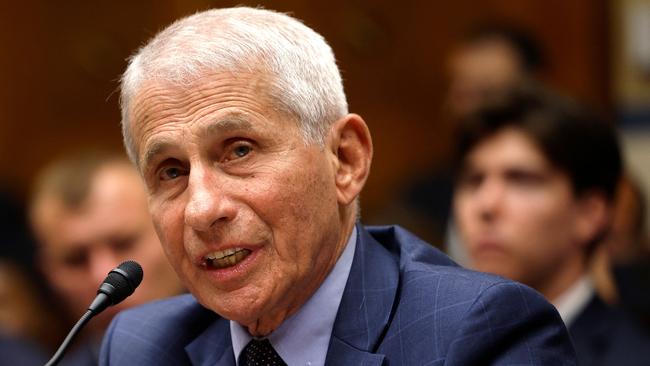
Trump has repeatedly criticised Fauci, who served as the director of the National Institute of Allergy and Infectious Diseases. Before his retirement in 2022, Fauci helped lead the effort to fight the Covid-19 pandemic under both Trump and Biden. Fauci became vilified on the right for his support of safety precautions and shutdowns and for opposing unproven treatments like the antimalaria drug hydroxychloroquine pushed by Trump.
Fauci told Congress last year that he didn’t try to cover up or discourage research into the possibility that the pandemic virus came from a lab rather than having a natural origin. He also defended social-distancing measures and other policies from the early months of the pandemic, saying the steps were based on science available at the time.
Fauci said that he had committed no crime, but that the threats “create immeasurable and intolerable distress for me and my family.” He added: “For these reasons, I acknowledge and appreciate the action that President Biden has taken today on my behalf.” Milley, who retired in 2023, has repeatedly clashed with Trump. In his retirement speech, Milley said the military shouldn’t bow to “wannabe dictators,” in what appeared to be a swipe at Trump. He called Trump a “fascist” in a book by Washington Post reporter Bob Woodward. Trump has suggested Milley should face death for treason.
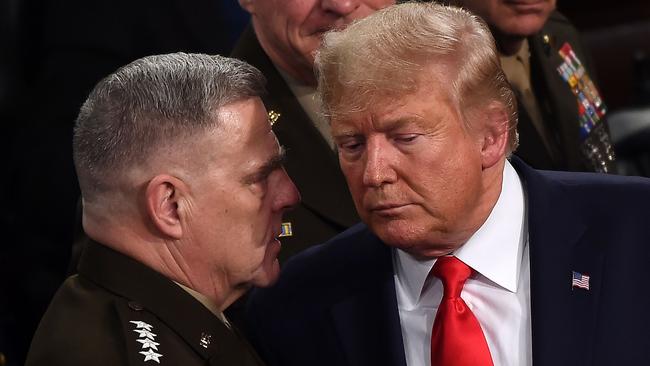
In a statement, Milley said he was “deeply grateful.” He said he didn’t “wish to spend whatever remaining time the Lord grants me fighting those who unjustly might seek retribution for perceived slights.” Trump has also aimed vitriol at a number of officials who served on a House committee that investigated the Jan. 6 riot, including former Wyoming Rep. Liz Cheney, a Republican, now-Sen. Adam Schiff (D., Calif.) and Rep. Bennie Thompson (D., Miss.), the select committee’s former chairman.
Thompson and Cheney, the former vice chair of the select committee, said in a joint statement that they had been pardoned “not for breaking the law but for upholding it.” They called Biden’s actions “’extraordinary circumstances’ when public servants are pardoned to prevent false prosecution by the government.”
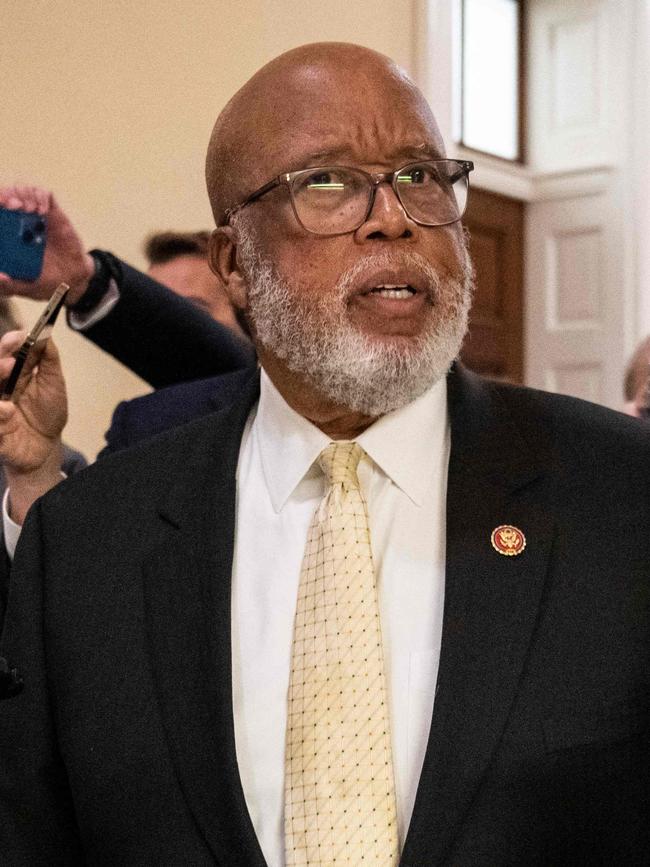
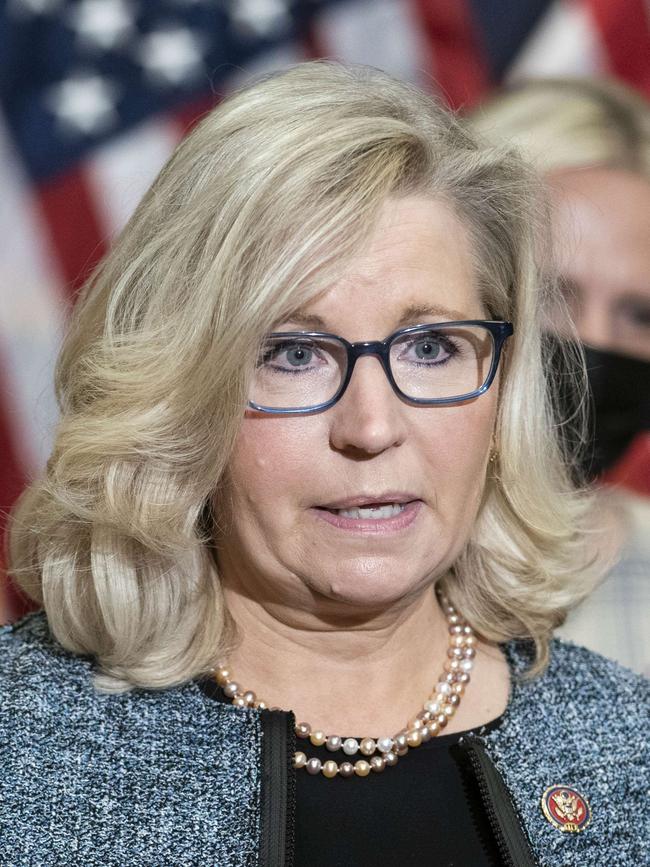
Biden also said he was commuting the life sentence of indigenous activist Leonard Peltier, who has been in prison since his conviction for the 1975 killings of two FBI agents. Biden said Peltier will spend the remainder of his sentence in home confinement, but that he won’t pardon him for his crimes.
Activists have spent decades lobbying for clemency for Peltier, 80, who is serving life in prison for the slayings of Special Agents Ronald Williams and Jack Coler during a standoff at the Pine Ridge Indian reservation in South Dakota.
Recent presidents have issued controversial clemency actions often shortly before leaving office. Trump issued pardons to former campaign chairman Paul Manafort, longtime adviser Roger Stone and Charles Kushner, his son-in-law’s father.
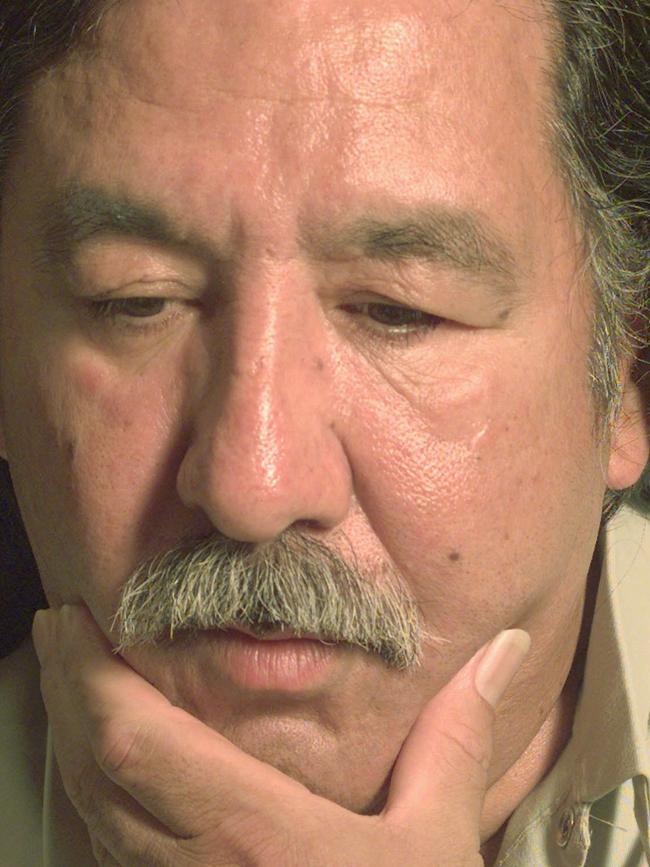
Manafort and Stone were charged as part of an investigation of Russian interference in the 2016 election. Kushner was sentenced to two years in prison on charges related to witness tampering during a federal investigation of his business.
President Bill Clinton pardoned fugitive commodities trader Marc Rich, whose ex-wife was a major donor to the Democratic Party and Clinton’s presidential library. President Barack Obama commuted the sentence of Chelsea Manning, convicted on charges related to passing classified documents to WikiLeaks.
The Wall Street Journal

To join the conversation, please log in. Don't have an account? Register
Join the conversation, you are commenting as Logout